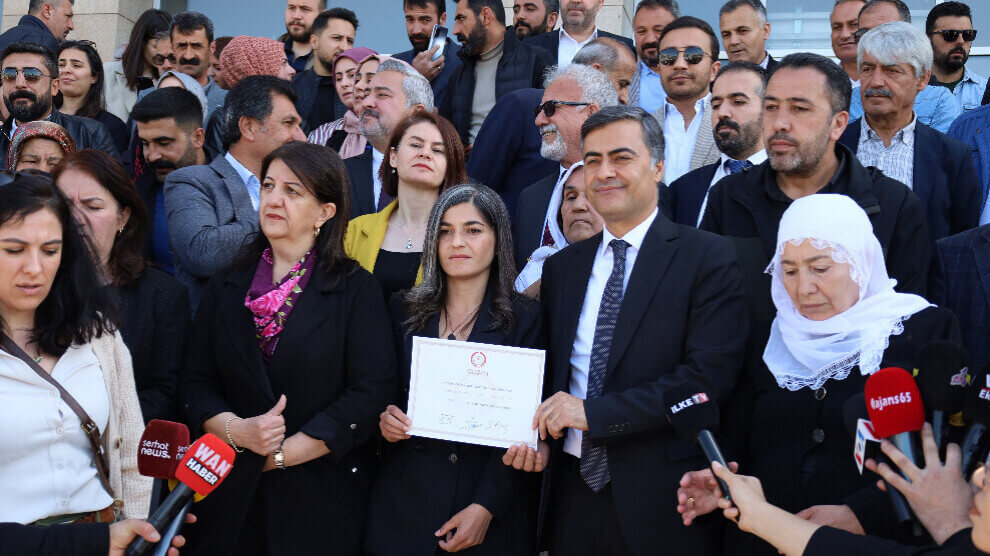Abdullah Zeydan, a pro-Kurdish party candidate who won a landslide victory in Sunday’s local election in eastern Van province but was initially denied the mandate to serve as mayor of the city, has received the mandate to govern after widespread protests across Turkey.
The provincial election authority in Van on Tuesday granted the mandate to serve as the province’s mayor to the runner-up, Abdullah Arvas from the ruling Justice and Development Party (AKP), instead of the pro-Kurdish Peoples’ Equality and Democracy Party’s (DEM Party) Zeydan, citing a court decision that revoked the politician’s right to run for election two days before the March 31 local polls.
Zeydan won 55.4 percent of the vote in the city, while Arvas garnered only 27.1 percent in Sunday’s local elections.
Turkey’s Supreme Election Council (YSK) on Wednesday approved an appeal made by the DEM Party against the decision that annulled Zeydan’s victory in Sunday’s elections.
Following the approval of the appeal, DEM Party candidates Neslihan Şedal and Zeydan accepted the mandate to serve as the co-mayors of the city on Friday.
Zeydan, who spoke to reporters in front of the Van Courthouse on Friday, conveyed his gratitude to the people of Van for standing by their political choice and to others who held protests across the country so as to uphold democracy in Van.
“The decision of the Supreme Election Council has nurtured hopes for social peace in our country. We all have responsibilities in establishing an honorable, free life together. Now is the time to provide services worthy of our beautiful city and its people,” Zeydan added.
Şedal also said her party has long been advocating for the establishment of equality, justice, freedom and collective conscience in the society, particularly in terms of local governance.
According to a report by the Gazete Duvar news website on Friday, among those who gathered in front of the courthouse were the DEM Party’s Van lawmakers, provincial and district leaders from the pro-Kurdish People’s Democratic Party (HDP) and the Democratic Regions Party (DBP) in addition to the Peace Mothers, a women’s civil rights movement in Turkey that aims to promote peace between Turkey’s different ethnic groups through non-violent means.
Why the politician faced a political ban stems from a government crackdown on the Kurdish political movement in the aftermath of a coup attempt in July 2016.
Zeydan, who had been elected on the ticket of the HDP – the predecessor of the DEM Party – in 2015, was arrested in 2016 after criticizing the Turkish army’s air campaign against outlawed Kurdish militants in the Kurdish-majority southeast.
The election authority’s refusal to allow Zeydan to serve as Van’s mayor despite his landslide victory led to outrage and protests across the country, especially in the southeast region.
Some of Turkey’s opposition parties, which were criticized in the past for remaining silent in the wake of the ousting of democratically elected Kurdish mayors by the government, were more vocal in their criticism this time and called for the government to retreat from its mistake of usurping the people’s will. The move also attracted condemnation from European politicians.
In the local elections of March 31, 2019, the HDP won 65 municipalities in Turkey’s eastern and southeastern regions. But due to the decisions of the YSK in six cases and the Interior Ministry, nearly 50 mayors were removed from office or not allowed to assume office. The Turkish government has systematically appointed trustees to replace democratically elected mayors in the country’s Kurdish-majority regions.
Kurdish politicians and some of their supporters in Turkey are frequently accused of having links to the outlawed Kurdistan Workers’ Party (PKK), listed as a terrorist organization by Turkey and its Western allies. They deny the accusations.

